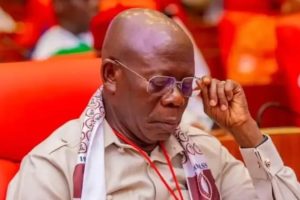
Governor Zulum Urges Reconsideration of Tinubu’s Tax Reform Bills, Cites Concerns Over Regional Fairness
Borno State Governor, Babagana Zulum, has voiced strong reservations about the proposed tax reforms championed by President Bola Tinubu. Speaking during an interview on Channels Television, Zulum emphasized that the current structure of the proposed bills could disproportionately favor Lagos State, particularly in terms of Value Added Tax (VAT) allocation, while leaving other regions at a disadvantage.
Governor Zulum warned of potential consequences if the President pushes the bills through the National Assembly without addressing these concerns. He called for broader consultations and adjustments to ensure a more equitable tax system that benefits all Nigerians. While acknowledging President Tinubu’s authority, Zulum stressed the need for democracy and inclusivity in policymaking.
“I respect the President’s authority and the system he represents. However, if he uses his influence to pass these tax bills without making the necessary changes, there will be consequences for the people,” Zulum stated. He clarified that his stance was not an opposition to the President’s administration but rather a call for fairness and a more comprehensive approach to tax reform.
The governor also dismissed claims that northern governors were uniformly against the President, stating, “We are not against the President. Our concerns are about the impact of these reforms on the people we represent.”
The proposed tax reforms have sparked intense debate since October, when President Tinubu submitted several bills to the National Assembly, including the Joint Revenue Board of Nigeria (Establishment) Bill, the Nigeria Revenue Service (Establishment) Bill, the Nigeria Tax Administration Bill, and the Nigeria Tax Bill. These bills aim to streamline tax administration and boost federal revenue but have faced criticism from various quarters, including state governors who fear regional disparities.
Despite this opposition, the Senate has advanced the bills, passing them for second reading. However, Governor Zulum insists that more time is needed for consultations to ensure the reforms reflect Nigeria’s diverse economic realities.
As the debate continues, the proposed reforms highlight the challenges of balancing national fiscal goals with the interests of Nigeria’s federating units. Whether the concerns raised by Governor Zulum and other stakeholders will lead to significant amendments remains to be seen, but the push for a fairer tax structure underscores the importance of inclusive governance.




